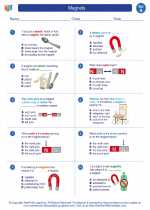Zygote
A zygote is the initial cell that is formed when two gametes, a sperm and an egg, unite during fertilization. This process results in the formation of a new individual with a unique combination of genetic material from both parents.
Formation of Zygote
When a sperm cell fertilizes an egg cell, the genetic material from the two gametes combines to form a zygote. This marks the beginning of the development of a new organism.
Characteristics of Zygote
- Contains a full set of chromosomes, half from the mother and half from the father
- Has the potential to develop into a complete organism
- Undergoes rapid cell division to form an embryo
Development of Zygote
After formation, the zygote undergoes a series of cell divisions, forming a cluster of cells known as a blastocyst. This eventually leads to the development of a fetus, which continues to grow and develop within the mother's womb.
Study Guide
Here are some key points to remember about the zygote:
- What is a zygote?
- How is a zygote formed?
- What are the characteristics of a zygote?
- What is the developmental process of a zygote?
Understanding the concept of the zygote is essential in comprehending the early stages of human development and reproduction.
.◂Science Worksheets and Study Guides First Grade. Magnets

 Worksheet/Answer key
Worksheet/Answer key
 Worksheet/Answer key
Worksheet/Answer key
 Worksheet/Answer key
Worksheet/Answer key
 Vocabulary/Answer key
Vocabulary/Answer key
